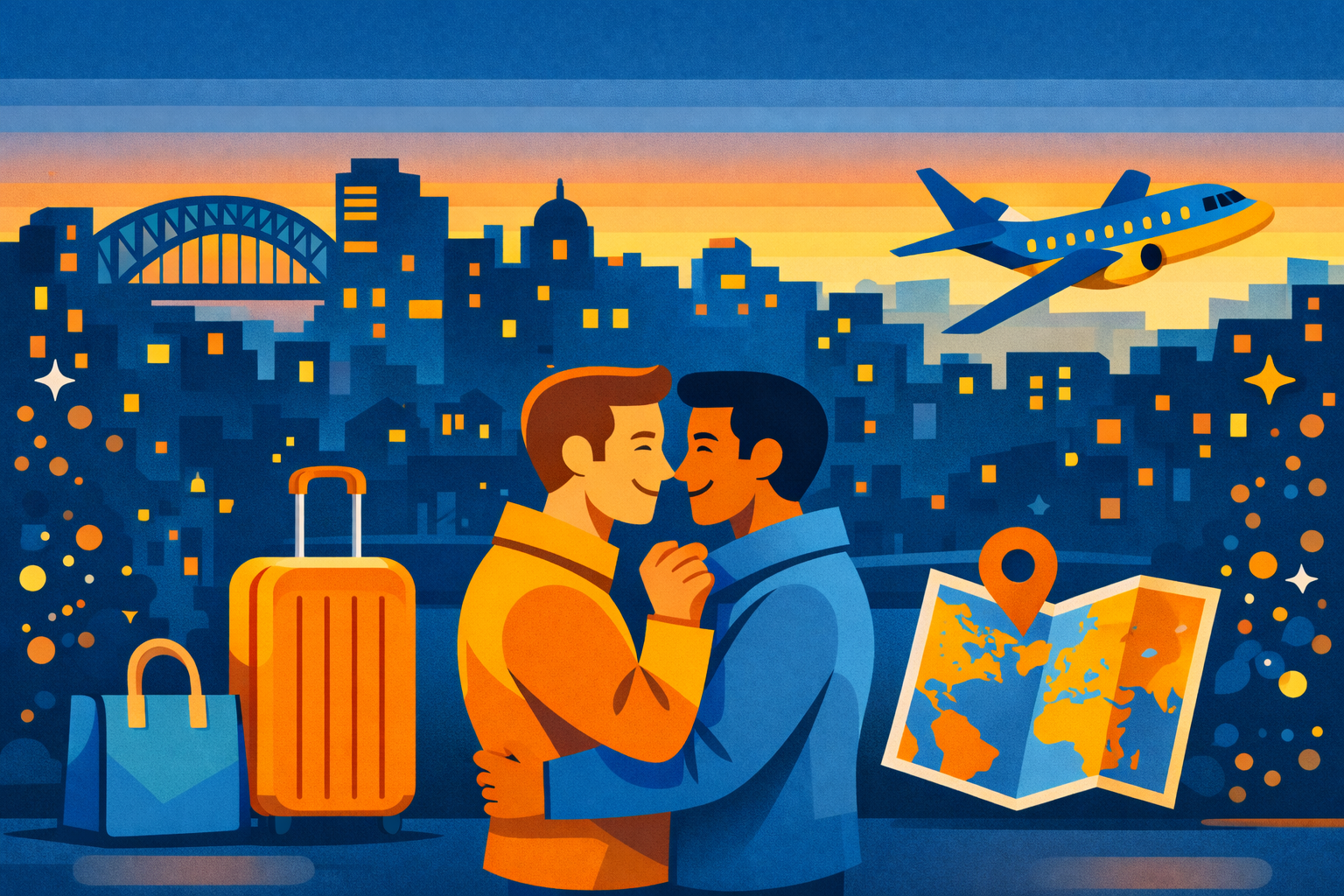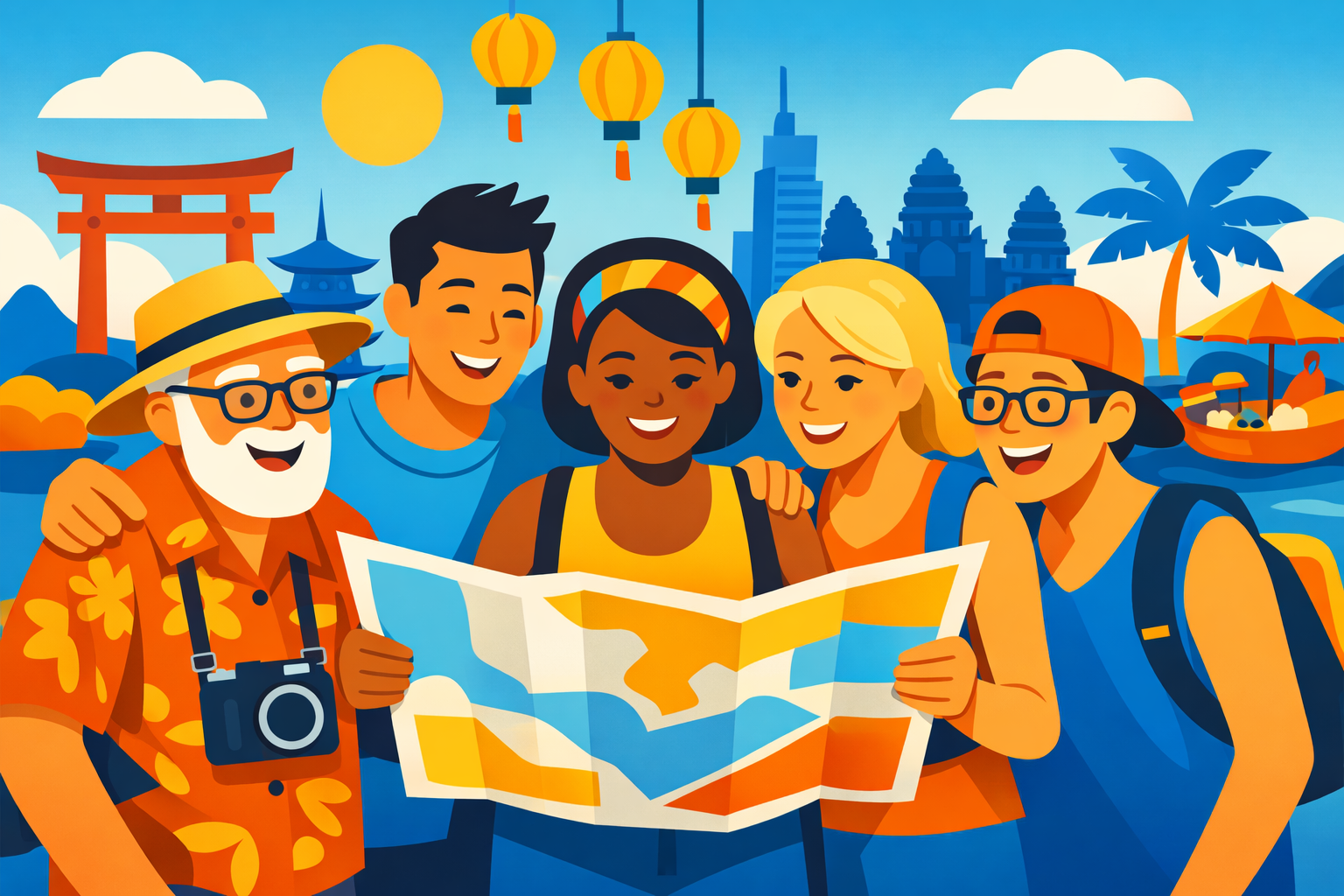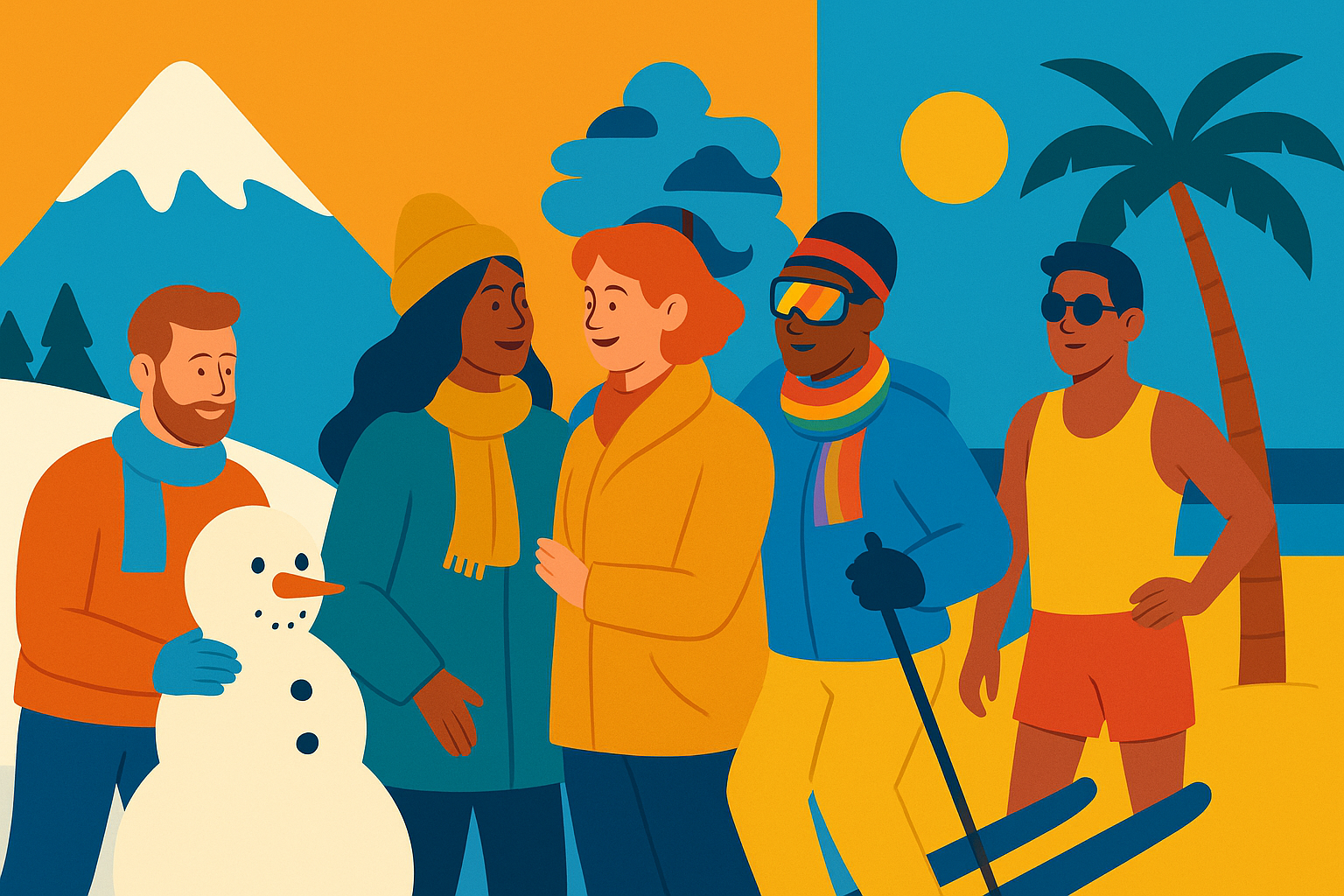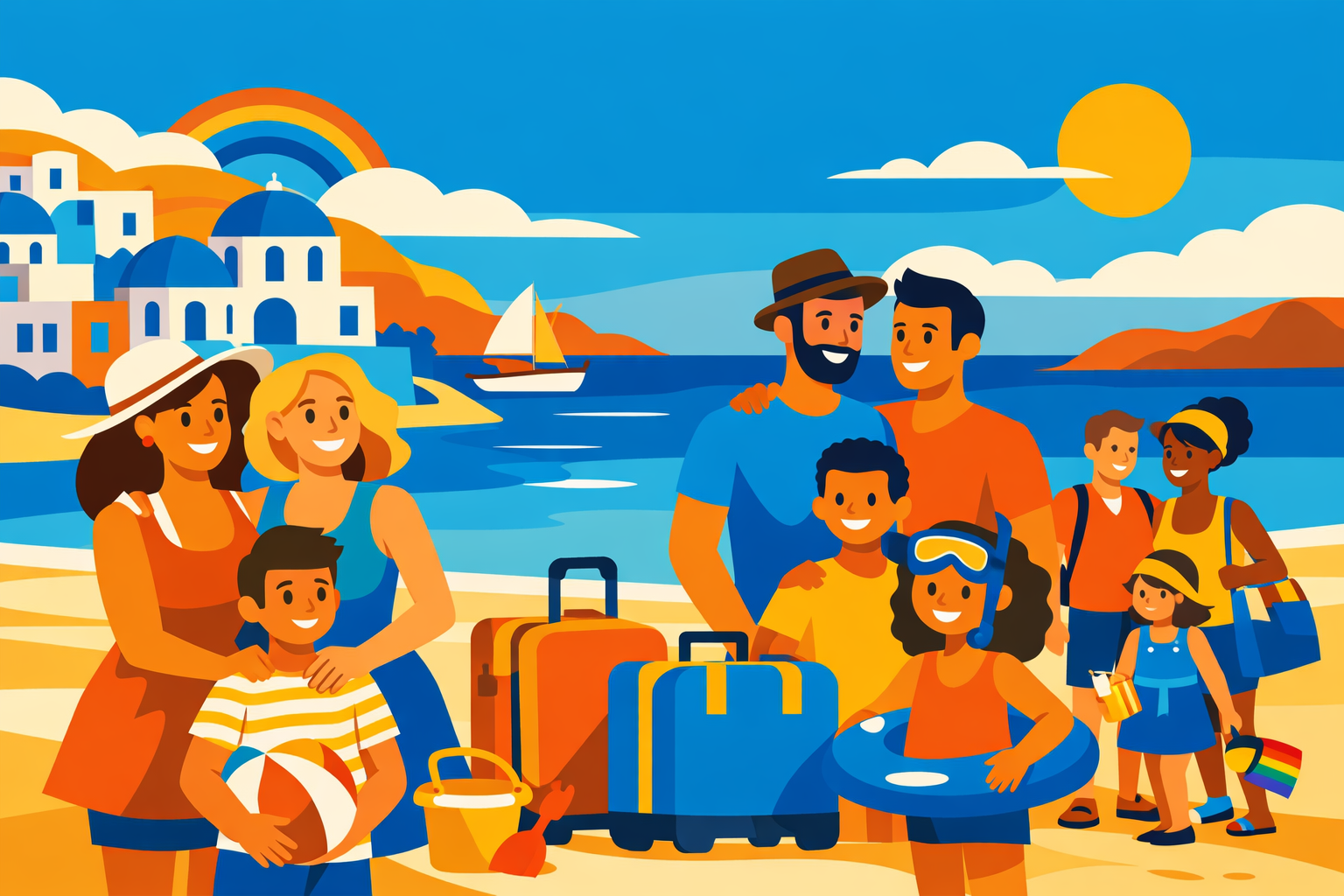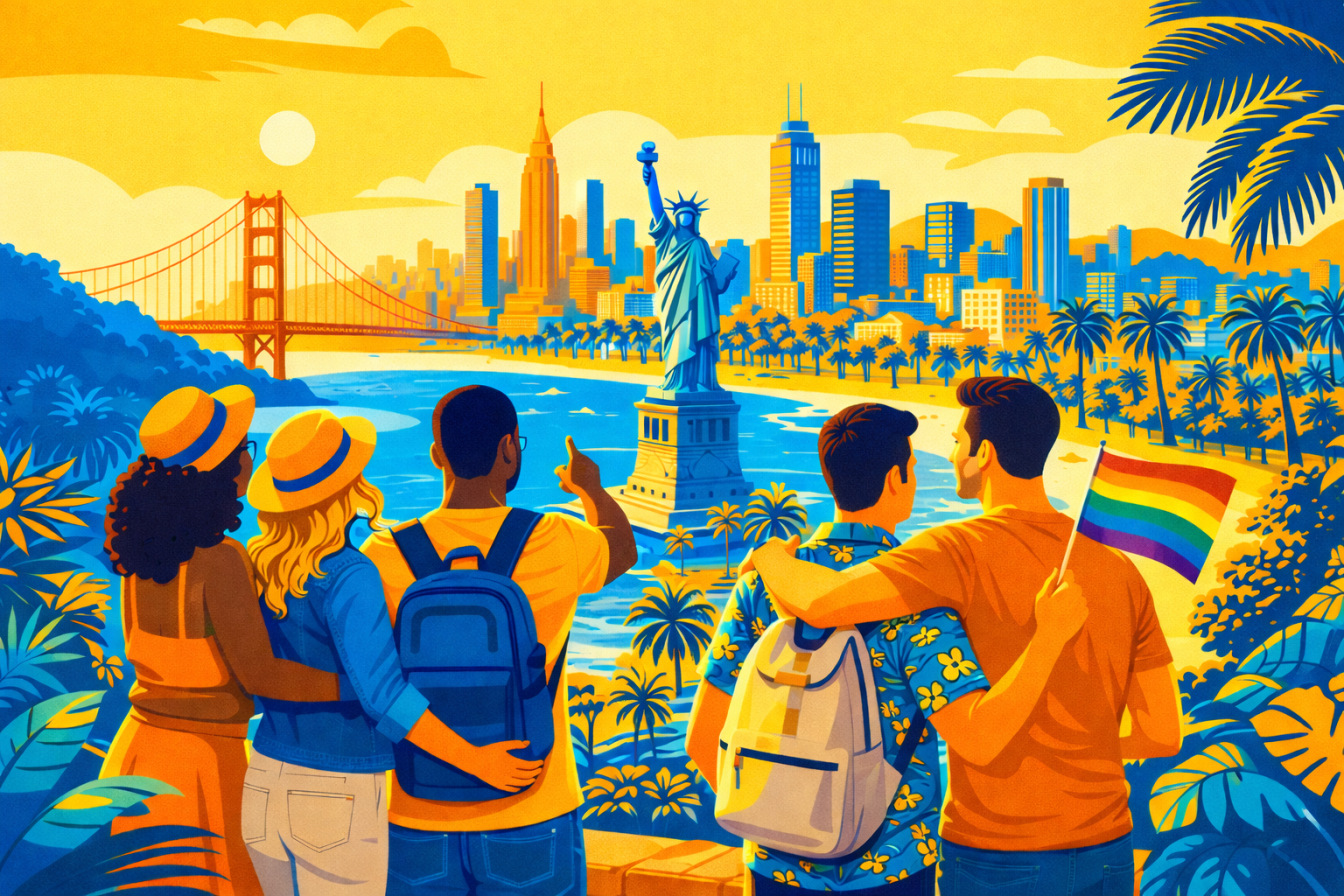Is it Safe for LGBT+ Travellers to go to the Middle East
Is it Safe for LGBT+ Travellers to go to the Middle East
When people search for LGBT Travel in the Middle East, they’re often met with confusion and fear. News headlines focus on punishments and bans, yet many LGBT+ travellers visit the region safely every year. The truth sits somewhere in between — a mosaic of countries with very different laws, cultures, and risks.
The Middle East isn’t a single story. It stretches from the liberal streets of Tel Aviv to the quiet dunes of Oman, crossing borders where laws and attitudes can change overnight. For queer travellers, that means preparation is everything.
Before booking flights or scrolling through resorts, it’s important to understand not just what’s written in law, but what’s lived in daily life.
Understanding the Reality of LGBT Travel in the Middle East
While some nations criminalise same-sex relationships with severe penalties, others quietly tolerate foreign visitors as long as public displays of affection are avoided. A few, like Jordan and Israel, even have visible queer communities — though acceptance varies by city and setting.
The safest approach is to research each destination individually. Broad assumptions about the “Middle East” can be misleading.
Cultural norms matter as much as legal codes. What might be normal in London — a quick kiss hello, holding hands, or rainbow accessories — could draw unwanted attention elsewhere. Travellers who adapt to local customs tend to have smoother, more respectful experiences. After Petra and Wadi Rum, you can
explore more Middle Eastern highlights
Legal Landscape at a Glance
Across the Middle East, laws range from total prohibition to partial recognition.
- Legal (but socially conservative): Jordan, Bahrain, Israel.
- Illegal but unevenly enforced: UAE, Oman, Lebanon, Kuwait.
- Strictly criminalised: Saudi Arabia, Qatar, Iran, Iraq, Yemen.
However, enforcement isn’t uniform. Many local authorities quietly overlook private same-sex relationships, particularly among tourists. That said, discretion remains essential. It’s wise to avoid public affection, political discussions, or activist gestures.
The region’s social structure leans heavily on religion and family honour, which means visibility can carry different consequences than in Western contexts. Even countries without specific anti-gay laws may still stigmatise queer expression. Knowing where those social lines lie — and staying within them — can make travel far safer.
Digital and Border Safety
One of the lesser-known risks for LGBT travellers in the Middle East is digital exposure. Some governments monitor dating apps, social platforms, or private messages. Before arrival, delete sensitive photos or app histories. Use secure messaging tools and avoid discussing sexuality with strangers online.
When entering conservative nations, officials may inspect devices. Keeping phones travel-ready — with minimal personal data and no explicit content — is a simple way to prevent awkward questions or worse.
Travel insurance providers that understand LGBT+ needs can also be invaluable. They offer 24-hour support if situations change unexpectedly.
Respect, Not Fear
It’s easy to view the Middle East through a single lens of risk. Yet millions of LGBT+ people live, work, and even thrive there quietly. Respect for local culture doesn’t mean erasing yourself — it means travelling wisely. Small gestures, such as dressing modestly or using neutral language about partners, can open doors rather than close them.
The next sections explore where that balance works best — starting with Jordan, one of the region’s most quietly tolerant countries for LGBT+ travellers.
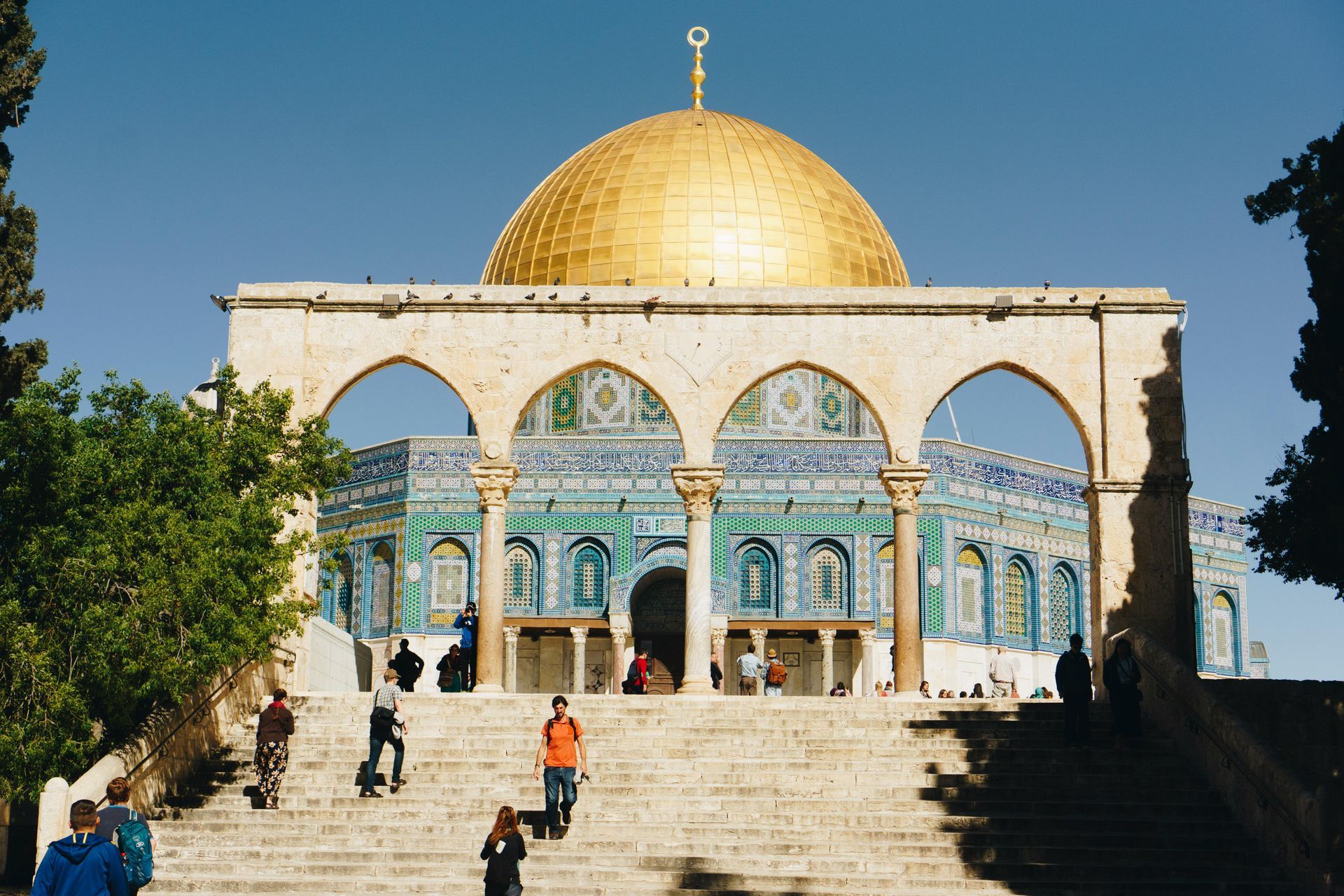
Jordan: Quiet Tolerance in the Desert
For many travellers, Jordan offers a surprisingly gentle introduction to the Middle East. Same-sex relations have been legal since 1951, a rarity in the region. Yet legality doesn’t equal open visibility — social attitudes remain conservative and religion shapes daily life.
How Gay-Friendly is Jordan?
Jordan’s LGBT+ community keeps a low profile. There are discreet cafés and occasional private gatherings in Amman, but no public pride events. Local people tend to follow a “don’t ask, don’t tell” approach. Foreign couples who act respectfully — avoiding PDA and dressing modestly — rarely encounter problems.
When visiting sites like Petra or Wadi Rum, it’s best to book tours through trusted operators familiar with LGBT+ guests. Many guides quietly ensure inclusive comfort without drawing attention.
Hotels in Amman and Aqaba are professional and welcoming. Wide Awake Holidays partners only with properties that uphold guest equality, even in places without formal protection laws. Staff training and discretion matter more than rainbow branding here.
Local Etiquette & Safety Tips
Avoid public affection, regardless of orientation — it’s frowned upon even among straight couples.
Book twin beds or request single rooms if unsure; hotel teams handle such requests tactfully.
Use gender-neutral language (e.g., “partner” rather than “boyfriend” or “girlfriend”) when chatting casually.
Alcohol is available but should be enjoyed moderately.
Travel insurance that includes legal assistance and medical evacuation is wise for any destination lacking explicit protections.
Jordan’s warmth lies in its hospitality, not its activism. LGBT travellers who focus on cultural exchange over visibility often find their journeys deeply rewarding.
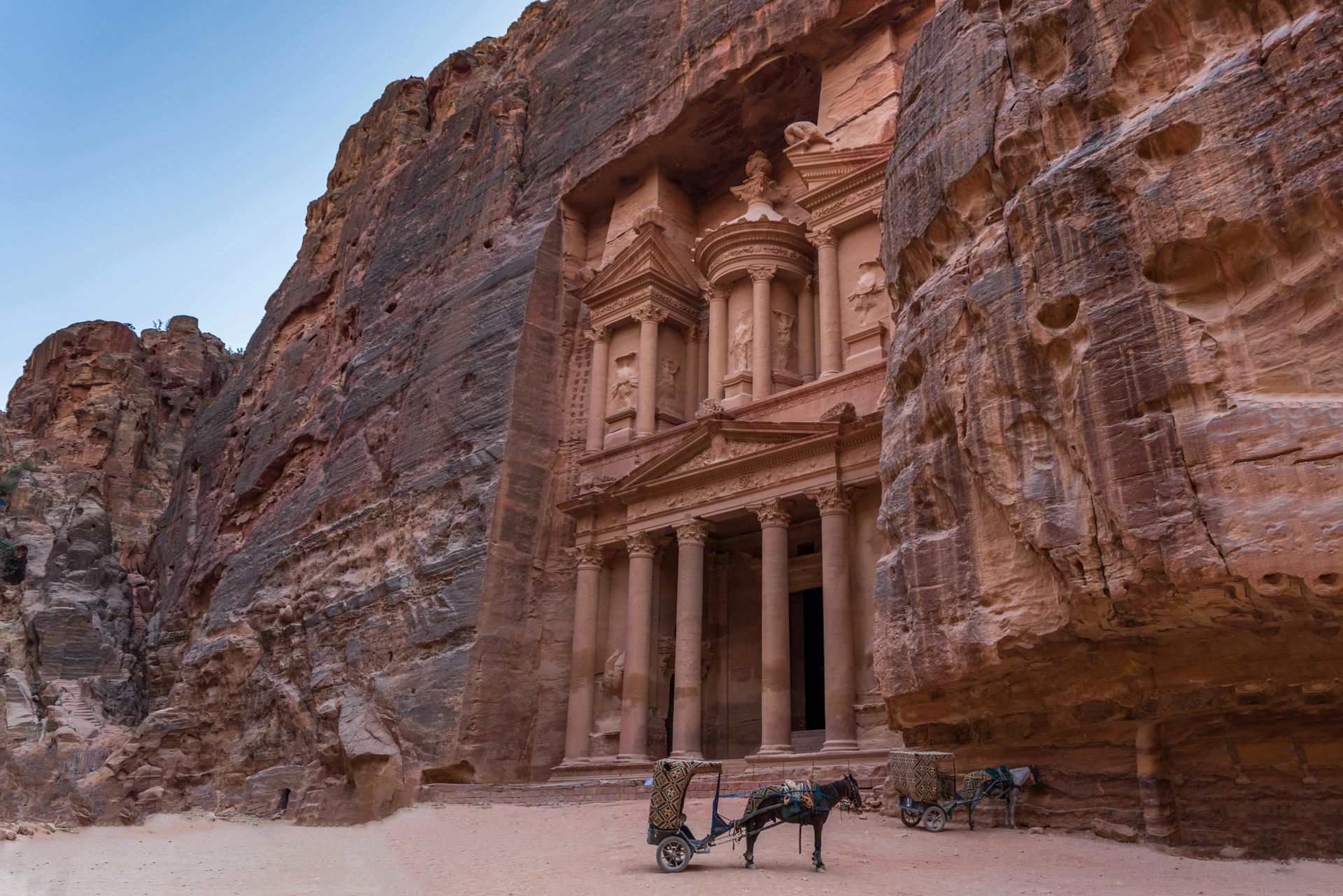
Israel: Out, Proud — and Complex
If Jordan represents quiet tolerance, Israel represents confident visibility. Tel Aviv is often called the “gay capital of the Middle East”, famous for its Pride parade and beach culture. Yet, as with any country, nuance matters.
How Gay-Friendly is Israel?
Israel recognises same-sex marriages performed abroad and bans workplace discrimination based on sexual orientation. Trans rights are progressing, and the community is vocal. Tel Aviv and parts of Jerusalem host thriving queer scenes — bars, film festivals, and inclusive hotels abound.
However, travellers should remember that religious conservatism shapes parts of society, particularly in Jerusalem and rural areas. Public affection is normal on the coast but may attract stares inland. As always, situational awareness keeps things smooth.
Where to Stay
Tel Aviv’s boutique hotels and beachfront apartments welcome LGBT guests openly. Wide Awake Holidays recommends properties near the Hilton Beach area, known for its inclusive vibe. For quieter escapes, the Galilee and Dead Sea regions offer stunning landscapes without the nightlife noise.
If current regional tensions affect itineraries, our team monitors FCDO travel advisories daily and adjusts plans proactively. Safety briefings and private transfers are included in every Israel itinerary we design. For quieter escapes, the Galilee and Dead Sea regions offer stunning landscapes without the nightlife noise — perfect for Israel wellness holidays.
Community & Culture
Israel’s queer culture is diverse: Pride Month fills the calendar with film, music, and art events, while grassroots groups support trans and non-binary youth. Visitors often describe a strong sense of belonging — yet politics and religion remain sensitive topics. Keeping discussions open-minded avoids awkward moments.
For those seeking connection, local LGBT tour operators collaborate on city meet-ups and beach events, ensuring visitors feel included without crossing social lines. Tel Aviv is just one of many vibrant hubs worldwide — why not plan your next city break abroad.
Travel Between Jordan & Israel
Many travellers combine these two countries in one trip. The Allenby Bridge crossing allows entry by land, but visa rules change frequently. Ensure passport stamps match your planned route — some Arab nations restrict entry after visits to Israel. Wide Awake Holidays handles border logistics so you don’t need to worry.
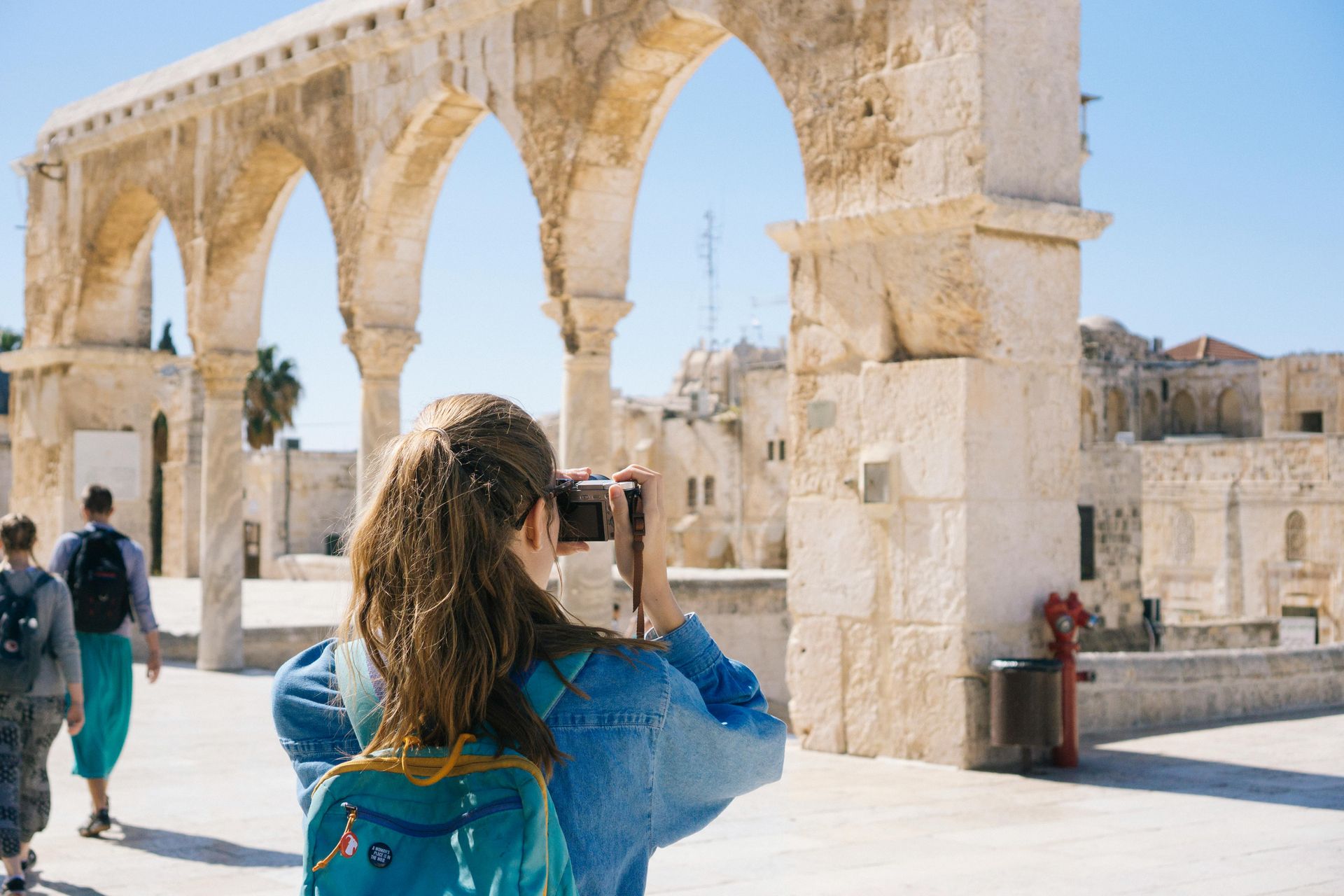
United Arab Emirates (Dubai & Abu Dhabi)
Dubai’s skyline glitters with possibility — yet beneath the glamour lies a strict legal code. Same-sex relationships are criminalised under federal law, and public affection of any kind can attract penalties. That said, enforcement is inconsistent. Tourists who act discreetly usually encounter no issues.
How Gay-Friendly is the UAE?
Officially, not at all. Practically, tolerance exists in private spaces catering to foreigners. Many upscale hotels quietly host mixed-orientation guests without question, but staff discretion is expected. It’s best to book through agents who know which properties are reliably welcoming.
Dubai’s cosmopolitan image means you’ll meet travellers from everywhere, yet open discussion of sexuality remains taboo. Think of it as a “professional” destination — polished, friendly, but conservative underneath.
Travel Tips for the UAE
- Avoid any public display of affection, even a hug or hand-holding.
- Use private transport at night rather than street taxis.
- Refrain from using dating apps while in-country; they’re sometimes monitored.
- Alcohol consumption is legal in licensed venues — stay within those limits.
- Carry minimal medication and always keep prescriptions handy.
Dubai and Abu Dhabi both deliver extraordinary experiences — modern art, desert adventures, futuristic architecture — but treat discretion as part of the travel etiquette, not repression.
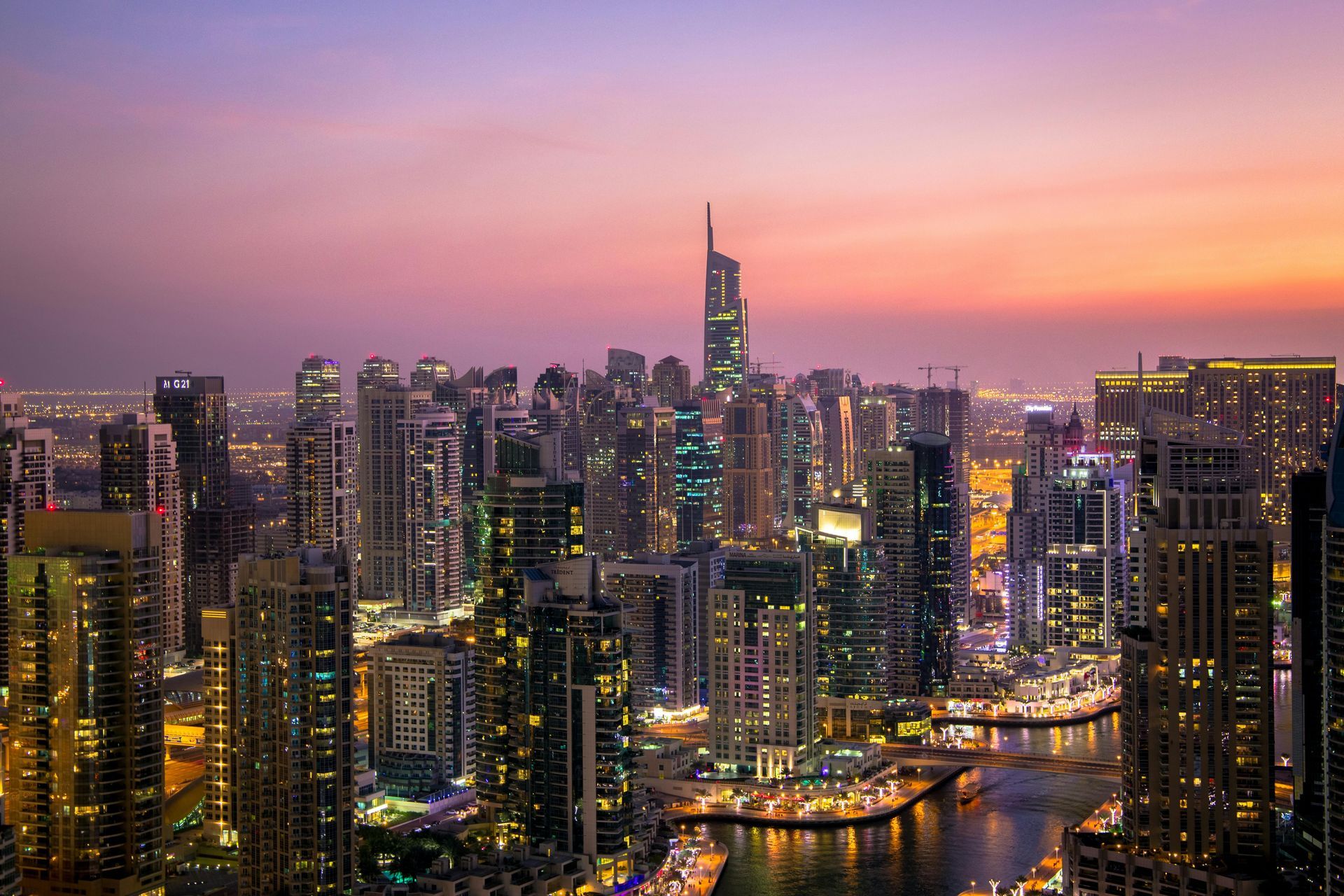
Oman: Serenity with Structure
Oman feels calmer and more traditional than its Gulf neighbours. Its charm lies in mountain villages, wadis, and gentle hospitality. Legally, same-sex intimacy is punishable by imprisonment, but prosecutions are rare and social life operates on quiet understanding. For a warmer twist, many travellers head to Oman’s coastlines to find their ideal beach escape.
How Gay-Friendly is Oman?
While laws appear harsh, Omani society values politeness and privacy. Locals seldom pry into personal matters. Tourists who behave modestly are generally treated with warmth. There are no visible queer venues, yet inclusive service exists in high-end hotels where Western travellers are common.
Traveller Advice
- Dress conservatively — shoulders and knees covered in public.
- Book twin rooms unless the hotel explicitly confirms double-bed comfort.
- Keep social media private; avoid posting anything identifiable as LGBT-specific.
- Friday (the holy day) can affect schedules; plan excursions accordingly.
Oman’s measured pace gives visitors space to breathe. For couples comfortable maintaining discretion, it’s one of the most tranquil spots in the region.
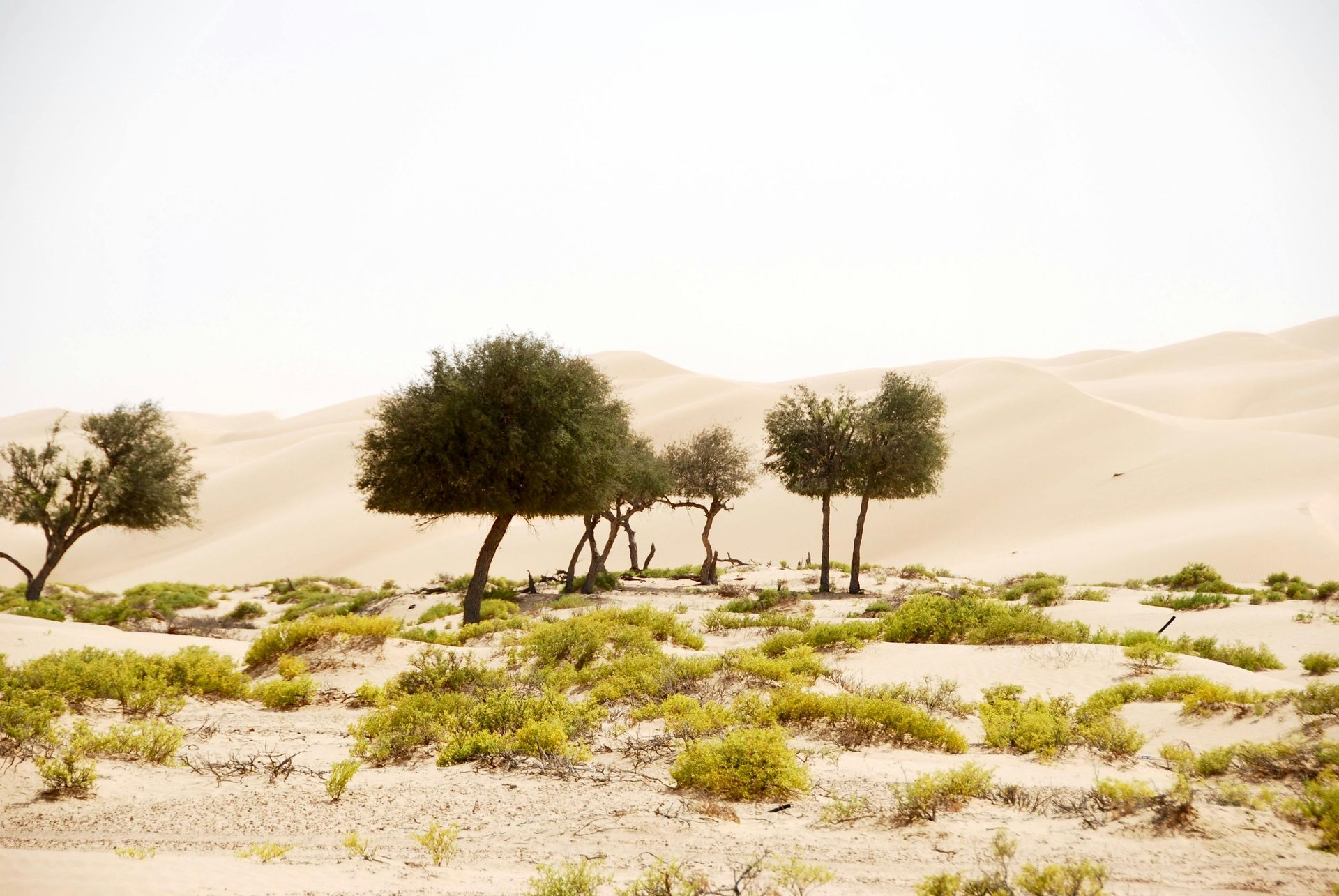
Lebanon: Vibrant but Volatile
Lebanon has long been viewed as the cultural heartbeat of the Arab world. Beirut once hosted the region’s most visible queer nightlife. However, political and economic instability has dimmed that glow — though the spirit of openness persists.
How Gay-Friendly is Lebanon?
Lebanon’s penal code technically bans “sexual intercourse contrary to nature,” yet court rulings since 2018 have begun challenging its enforcement. Urban areas, especially Beirut, show growing acceptance, while rural regions remain conservative. Activism is visible but under pressure; public Pride events have faced cancellations.
Still, Beirut retains underground venues and cafés that welcome everyone. Travellers report a cautious freedom: you can be yourself, provided you avoid drawing state attention.
Street-Smart Safety
Stick to licensed venues in Beirut’s Gemmayzeh or Mar Mikhael districts.
- Avoid political gatherings or protests.
- Carry copies of ID rather than originals when out at night.
- Monitor local news — situations shift quickly.
Lebanon’s resilience and warmth make it unforgettable. It’s a destination for those who value connection and creativity over comfort zones.
Balancing Dream and Discretion
Across Dubai’s skylines, Oman’s canyons, and Beirut’s nightlife, one theme repeats: respect opens doors.
For LGBT Travel in the Middle East, safety depends less on hiding and more on reading the room — recognising when to blend in and when it’s safe to exhale.
Wide Awake Holidays crafts each itinerary around that nuance. Every guide, driver, and property partner is vetted for professionalism and cultural sensitivity, so travellers can focus on exploration rather than anxiety
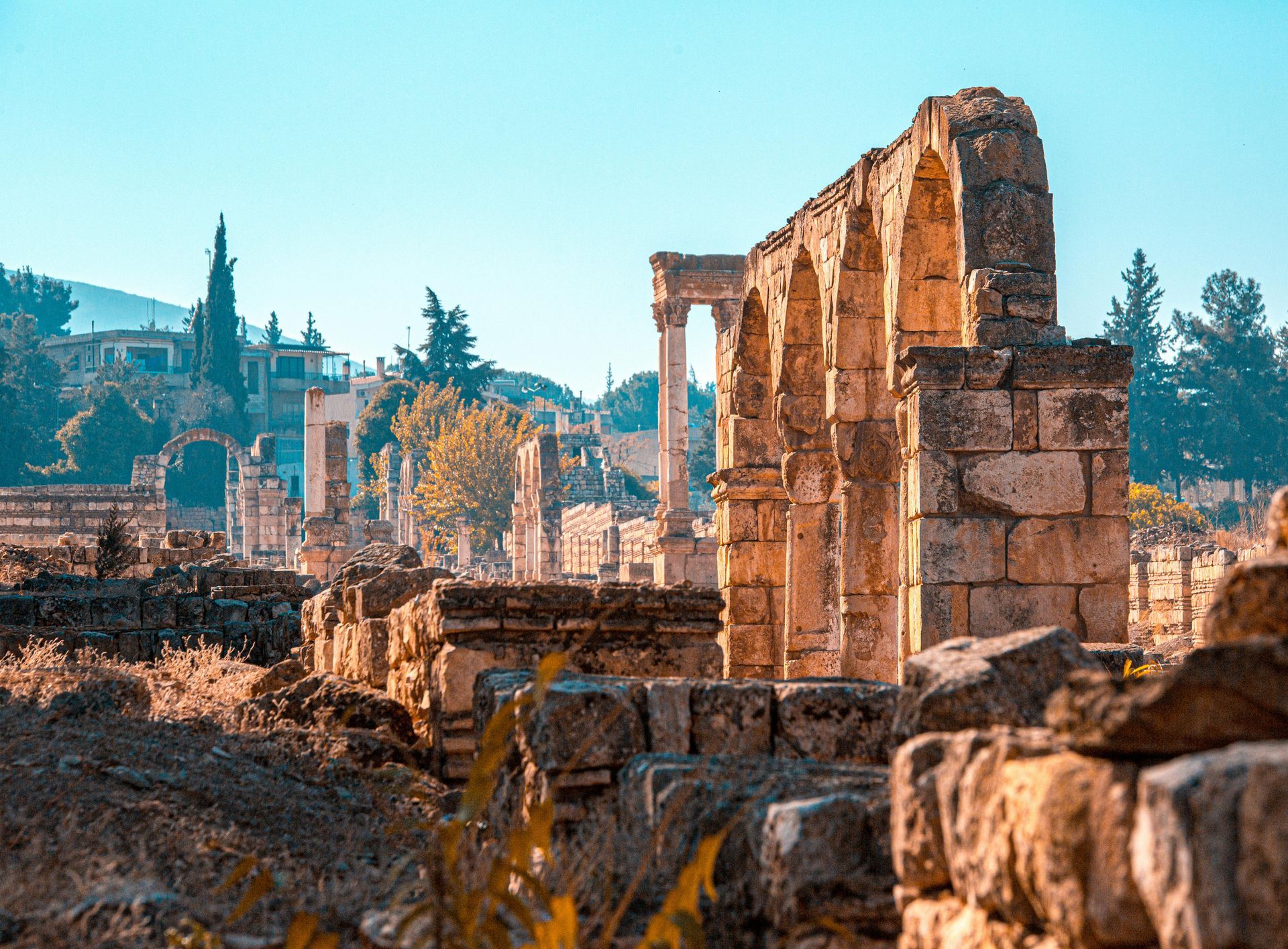
Countries to Avoid (for Now)
While some Middle Eastern destinations are manageable with discretion, others remain unsafe for LGBT+ travellers. These are countries where laws, policing, or social hostility make even short visits too risky right now.
Saudi Arabia
Same-sex relationships are punishable by death or long imprisonment. Religious police still play a role in enforcing morality laws, and there’s zero tolerance for open expression. Travellers should not attempt to visit, even for transit.
Qatar
Although marketed as modern, Qatar continues to criminalise same-sex intimacy. There have been reports of surveillance, arbitrary arrests, and harassment, especially around major international events. LGBT travellers should avoid both visiting and transiting through Doha.
Iran
Iran maintains severe penalties for same-sex acts, including the death penalty. Gender expression and identity are tightly controlled, and visitors face high scrutiny. Travel there is strongly discouraged for anyone identifying as LGBT+.
Iraq
In 2024, Iraq introduced new laws explicitly criminalising LGBT identities. Reports of violence and persecution remain widespread, with both state and non-state actors involved. This is not a safe destination under any circumstances.
Yemen
The law still allows for the death penalty for same-sex intimacy, and cultural attitudes are among the most conservative in the region. Travellers should entirely avoid Yemen.
Even airport transits through these nations can present risks if officials decide to check personal devices or ask intrusive questions. Always check flight routes carefully, and where possible, connect via safer hubs such as Amman, Dubai, or Istanbul.
Wide Awake Holidays constantly reviews route safety to ensure that clients avoid hidden risks when travelling through the region.

Jamie Says:
"Our travellers are smart, curious, and kind. They don’t want to hide who they are — they just want to explore safely and respectfully. The key is balance: confidence with cultural awareness. When we plan trips across the Middle East, we make sure clients know what to expect, what to avoid, and who to call if anything feels uncomfortable.”
Your Safety Net: How Wide Awake Holidays Protects Every Booking
Travelling as an LGBT+ person shouldn’t mean travelling without protection. Every holiday booked through Wide Awake Holidays is covered by the same ATOL and PTS safeguards that protect mainstream UK travellers — with added layers of discretion and advocacy.
Financial and Legal Protections
- ATOL Protection: All flight-inclusive packages include Air Travel Organiser’s Licence coverage, securing refunds or repatriation if a supplier fails.
- PTS Membership: Provides additional security through Supplier Failure Insurance for land-based holidays and transfers.
- Flexible Booking Policy: Change dates or destinations if travel advisories shift — no hidden fees.
Privacy and Discretion
We treat privacy as a safety feature, not a luxury.
- Traveller names, genders, and relationship details are shared only when essential for booking.
- Partner hotels and ground teams are briefed on discretion and equality protocols.
- No rainbow flags or coded signals are used in documents that could attract attention in conservative countries.
Travelling Wisely, Travelling Proudly
LGBT Travel in the Middle East demands preparation, but it rewards open-minded curiosity. The region’s beauty — its ancient ruins, spice markets, desert silence, and coastal sunsets — is accessible to travellers who approach it with respect.
Visibility looks different everywhere. In Amman, it’s subtle smiles; in Tel Aviv, it’s a rainbow parade; in Oman, it’s quiet understanding over tea.
Safety isn’t about hiding — it’s about travelling smart, choosing partners who care, and trusting experts who know the landscape.
Whether you’re planning a romantic desert escape or a history-filled city break, Wide Awake Holidays is here to make it safe, seamless, and authentically you.
👉 Ready to plan your journey?
Reach our LGBT travel specialists via [contact page link] and start mapping your Middle Eastern adventure with confidence.
Send an Enquiry
We will get back to you as soon as possible.
Please try again later.
Frequently Asked Questions
Is LGBT travel in the Middle East legal?
It depends on the country. Some, like Jordan and Israel, permit same-sex relations, while others strictly forbid them. Always check each destination’s current laws before booking.
Can same-sex couples share a hotel room?
Yes, in many international-chain hotels, though discretion helps. Wide Awake Holidays pre-confirms this with every property so you’re never left guessing.
Are Pride events held in the region?
Tel Aviv hosts the largest Pride in the Middle East. Smaller underground gatherings happen in Lebanon, but others face bans or safety issues.
What clothing is appropriate?
Modest dress works best — shoulders and knees covered in public areas. Swimwear is fine at private resorts or beaches.
Is it safe to use dating apps?
Generally no. Apps are sometimes monitored or used for entrapment. Delete profiles before travel and meet people through verified networks only.
Carry documents that match your presentation. Some airports scrutinise mismatched
Carry documents that match your presentation. Some airports scrutinise mismatched gender markers. Our team advises on the least risky transit routes.
Can LGBT travellers transit through high-risk countries?
Avoid if possible. Even airport layovers can pose problems. We always route clients through safer hubs like Istanbul, Dubai, or Amman.
What’s the best time of year to visit?
Autumn to spring (October–April) offers cooler weather and fewer crowds across Jordan, Oman, and the UAE.
Do local guides understand LGBT issues?
Yes — all Wide Awake Holidays guides are vetted for cultural sensitivity and inclusive service standaprds.
What should I do if I face discrimination abroad?
Stay calm, avoid confrontation, and contact our 24-hour emergency line. We’ll coordinate local support and, if needed, liaise with the nearest British embassy.
Some of our Latest Offers
Discover our latest hand-picked travel offers below – automatically updated and inspired by the destinations featured in this blog.



